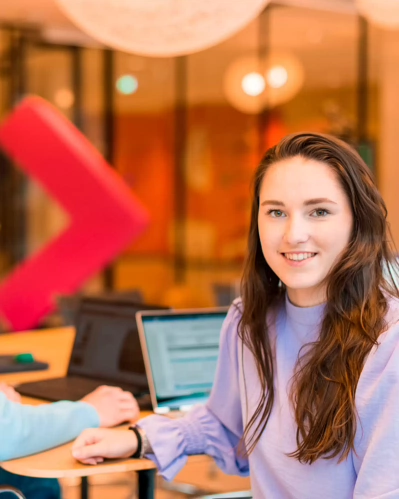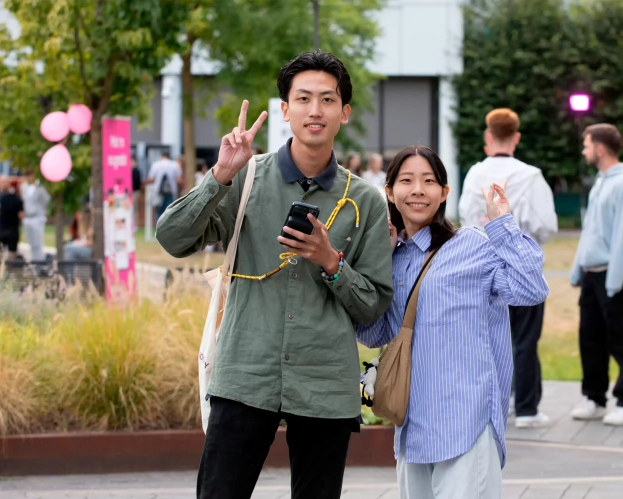

Introduction to Informatics (first year)
About the exchange programme
This exchange programme will give you an introduction into the Informatics domain. It’s actually the first semester of an Informatics bachelor programme. Students will gain wide knowledge and competences in the Information Technology domain, providing a perfect starting point for further steps in the world of programming and software development. More precisely, this programme consists of courses on Java programming, databases and business administration, and a project for developing a web application.
Why this programme?
- Teaches Java programming and database management, foundational for software development.
- Includes a practical project to develop a web application, enhancing real-world skills.
- Integrates business administration, offering a holistic view of informatics in business contexts.
More about Introduction to Informatics (first year)
What can you expect from us
The semester consists of four modules with theory lectures and practical work, and a project in which students work together in groups. Educational activities are interactive and take place in small classes. Our classes are quite international: Dutch, German (due to our location at the border) and 'real' international students. Speaking English is the standard.
What do we expect from you
Foreknowledge in the IT domain is not needed; interest in the IT discipline and an active and eager-to-learn attitude is all we expect.
Admission requirements
For this exchange programme we have the following admission requirements:
- English level: equivalent to IELTS 6.0;
- Basic knowledge, interest in IT.
How will your course programme be recognised by your home university?
Fontys will provide you with a so-called ‘Transcript of Records’, which will clarify the results that you have achieved. Depending on your results, you will receive a maximum of 30 ECTS credits. ECTS credits are recognised throughout Europe. The agreement between your home university and Fontys University of Applied Sciences will usually include a condition whereby the credits that you obtain will be recognised and transferred into the records kept by your home university.
Practical information
- Start moment(s)
- September
- Location
- Venlo
- ECTs
- 30
- Language
- English
- Duration
- 1 semester
Applications should always be submitted via the International Exchange (or Erasmus) Officer at the home university. This officer will send your application request (nomination) to Fontys. Once Fontys has received the nomination, your Fontys study department will send you a link to a web application called Mobility Online. Please take a look here to see how it works.
If you want to come as a freemover, we also need your university to send us a nomination e-mail. Once we have received this we will send you our application information.
As a freemover the fees are €75 per ECTS. If you are not sure if your university is a partner of Fontys Venlo University of Applied Sciences, the international office of your home university can tell you more about this.
Deadlines
Spring semester:
Nomination deadline November 1st
Application deadline November 15th
Fall semester:
Nomination deadline May 1st
Application deadline May 15th
For more information concerning the start date, please get in touch with the contact person of the study department of the concerned exchange programme.
English language requirements
For most English taught exchange programmes a minimum level of English language proficiency of CEFR* B2 or an equivalent of IELTS 6.0 or TOEFL 80 is required. However there might be programmes where a higher level is required and submitting evidence might be necessary.

For more detailed information about practical matters, such as financial matters, residence permit, health insurance and accommodation, please click on the button below.
More information on practical mattersDoing a study abroad most certainly means a lot of excitement and perhaps also a bit of anxiety. Getting used to everything may be a challenge at times. You may have language difficulties or be unfamiliar with certain aspects of life in the Netherlands and at the university.
We receive around 100 international exchange students each semester. To give them a warm welcome into Dutch culture and at our campus, the International Office has set up a buddy programme. A buddy is a Fontys bachelor student who is familiar with the campus and who can give practical help with administrative systems, timetables etc. They know their way around the city of Venlo and can also help students to better understand Dutch traditions and habits and feel at home real soon!
What else can students expect from a buddy? A buddy will:
- meet you at the Venlo train station and accompany you to your room.
- help you get settled during the first weeks by answering practical questions related to living in Venlo and by showing you around town.
- help you with questions about campus life, teaching styles, campus set-up, how to prepare for exams, etc.
- help you with practical questions such as how to print documents, how to get connected to Wi-Fi, get acquainted with the Fontys portal, etc.
- introduce you to Dutch culture.
- be able to join you during social activities.
The programme seeks to give students the best possible start to their study abroad in Venlo and at our campus!

